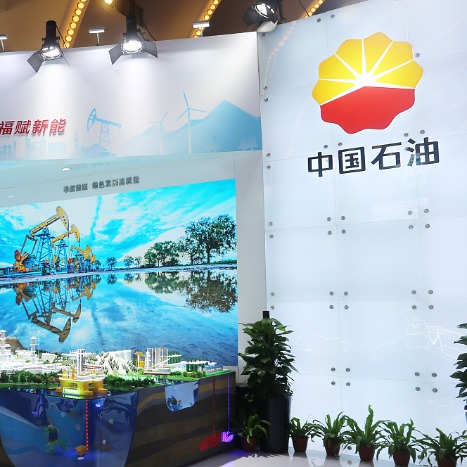



Oil producer China National Petroleum Corp's "zero-carbon crude oil extraction" is driving low-carbon transformation of energy-intensive oil and gas sectors, and will help advance decarbonization technologies and production models, experts said.
On Friday, the solar thermal system of a section of CNPC's Jilin oil-field, located in Northeast China's Jilin province, was connected to the power grid, marking the completion of the largest onshore zero-carbon oil production demonstration area in Asia. This area has yielded China's first barrel of "zero-carbon crude oil".
Ma Xiaohong, executive deputy manager of new energy at Jilin oil-field, said the section had fully replaced coal-fired power with green electricity through the construction of wind and solar power generation facilities and energy storage facilities. It also partially replaced natural gas heating with geothermal, solar thermal and air-source heat, achieving a yearly replacement of 600,000 cubic meters of natural gas.
Furthermore, carbon emissions from fossil energy consumption are collected and injected into oil reservoirs to improve oil recovery and sequester greenhouse gases. With these comprehensive measures, the sector has achieved zero-carbon crude oil production.
Yang Fuqiang, a researcher at Peking University's Institute of Energy, said that each metric ton of oil extracted, processed and consumed contributes roughly 3 tons of carbon emissions. As a significant energy producer as well as consumer, the petroleum industry's pursuit of low-carbon production methods holds crucial significance for China's carbon reduction goals.
According to the National Bureau of Statistics, crude oil production remained stable in the first half of this year at 105.05 million tons, up more than 2 percent year-on-year.
Lyu Jianzhong, deputy director of CNPC Research Center of China Top Think Tanks, said energy used for onshore oil and gas production involves natural gas and coal-fired electricity, resulting in high energy consumption and carbon emissions. Promoting green oil production is crucial for the industry's sustainable development and China's decarbonization goals.
Lyu further said that at present, many oil and gas fields constructed photovoltaic and wind power generation facilities on idle land to meet their demand for electricity, thereby reducing carbon emissions.
He said the intermittent, fluctuating or unstable nature of new energy sources also poses challenges to oil and gas extraction. Technological innovations are expected to address this issue in the future.
Yang from PKU noted that operations at oil extraction and processing facilities demand stable electricity. The instability of new energy power generation can be partly mitigated through energy storage equipment.
Apart from new energy power generation, many oil and gas fields are researching and promoting carbon capture, usage and storage or CCUS technologies, as well as carbon sinks and carbon trading mechanisms, to offset carbon emissions and realize zero-carbon production, Lyu said.
If you have any problems with this article, please contact us at app@chinadaily.com.cn and we'll immediately get back to you.